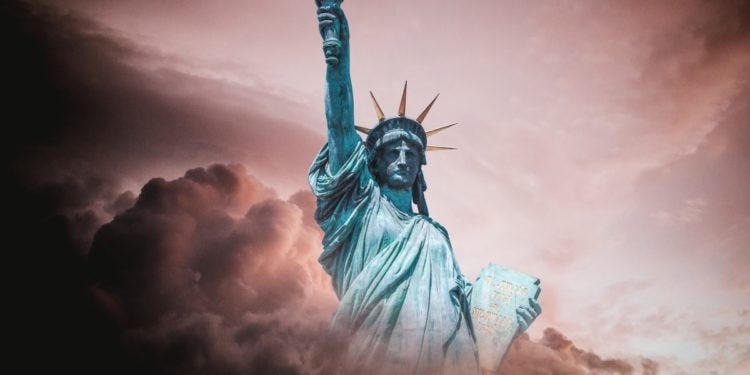Terrorism, Mass Shootings, and the Politics of Fear
Many political leaders and would-be leaders say, “You better be afraid.” Instead, choose to remember what America used to believe, that the only thing we have to fear is fear itself.
Too often, in the wake of horrendous atrocities, the spin mills of political thought begin churning at full speed before any concrete details are discovered. Worse, when we do have concrete details, few take the time to consider those details in good faith. Instead, those details are fed into the churning maw of political narrative.
The worst offenders of this unfortunate trend are politicians and demagogues who feed the politics of fear to gain traction for their proposals. Society is no longer afforded a mournful interlude of respectful silence to pray, mourn, and bury the dead. Instead, the dead immediately become pawns for political angling. Too often, the motivations of the murderer and the realities of the crime are secondary thoughts, if they are thoughts at all.
Nowhere is this unhealthy and disturbing trend more evident than on social media. In the wake of a terrorist attack or a mass shooting, inflammatory accusations flash across the screen in an ever-rising deluge of rage. Fingers are pointed as cyber-lynch mobs assemble, prepared to symbolically hang the first available scapegoat on the rope of their reactionary hatred. There is only one thing more incriminating than the incendiary couch-punditry. It is the fact that several weeks from the crime itself, when the concrete realities of the matter begin to reveal themselves, the cyber-mobs will have moved on to some other outrage.
There are more demagogues than can be counted who live off of the culture of outrage. There are the angry malcontents whose livelihood is built upon controversy and conspiracy-theorizing, like Alex Jones or Louis Farrakhan. Then, there are political figures who ostensibly serve the public good, like Donald Trump or Alexandria Ocasio-Cortez. Almost gleefully, these demagogues seize upon the panicked responses of the political left and right to further the narratives which define their political agendas.
Readers of this newsletter may be surprised to find public figures of such stark political differences lumped into the same category. But, while these individuals may be coming from dramatically different sides of the political spectrum, their narratives are strikingly similar. They all seek to control the American public through emotion and fear.
From the standpoint of human rights and individual identity, is there truly any difference between the blanket condemnation of Islam, in the wake of a terrorist attack, and the blanket condemnation of those lawfully bearing arms, in the wake of a mass shooting? Can any free society remain free if, out of fear, it condemns any portion of our society for crimes committed by a few deranged souls?
America is a free society, and there will always be those who choose to abuse that freedom and commit crimes, even disturbingly heinous crimes. America can, and should, find ways to prevent and fight back against such atrocities. But the actions America embarks upon should be firmly connected to researched realities. Sweeping assaults on the rights of honest people will solve nothing.
In bleak times that follow horrible tragedies, and in the wake of the divisive partisan vitriol that often follows, it is easy to give up hope. The voices of fear are far easier to listen to than the voices of reason and restraint. Times such as these are those where free nations so easily release their grasp on freedoms so dearly purchased by those who came before.
The politics of fear would have us believe there are only two narratives to choose from in the wake of a terrorist attack or a mass shooting. After a terrorist attack, we see the fear of Muslims rise and hear the call to craft laws and rid the country of Muslims as much as possible. After a mass shooting, we see the fear of guns and hear the call to craft laws and rid the country of guns as much as possible. America should reject these narratives and any narratives based on fear.
The true narrative, the American narrative, is a recognition that whether we speak of firearms or religious belief, both are merely a few of the possible vessels through which the duality of man is manifest. Evil exists in the world. All free people should be watchful and wary of when it lifts its head, do what can be done to stop it, and be prepared to fight back and resist it when it strikes. However, society cannot lose hope in the goodness of humanity because of the actions of one, or a few, lost souls. If America, or any other free nation, does that, it will have lost everything freedom stands for.
Too often in this modern world, fear reigns supreme. Many political leaders and would-be leaders say, “You better be afraid.” Instead, choose to remember what America used to believe, that the only thing we have to fear is fear itself.



